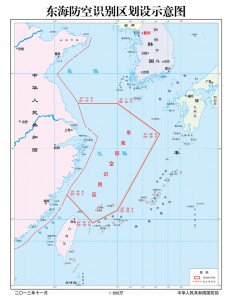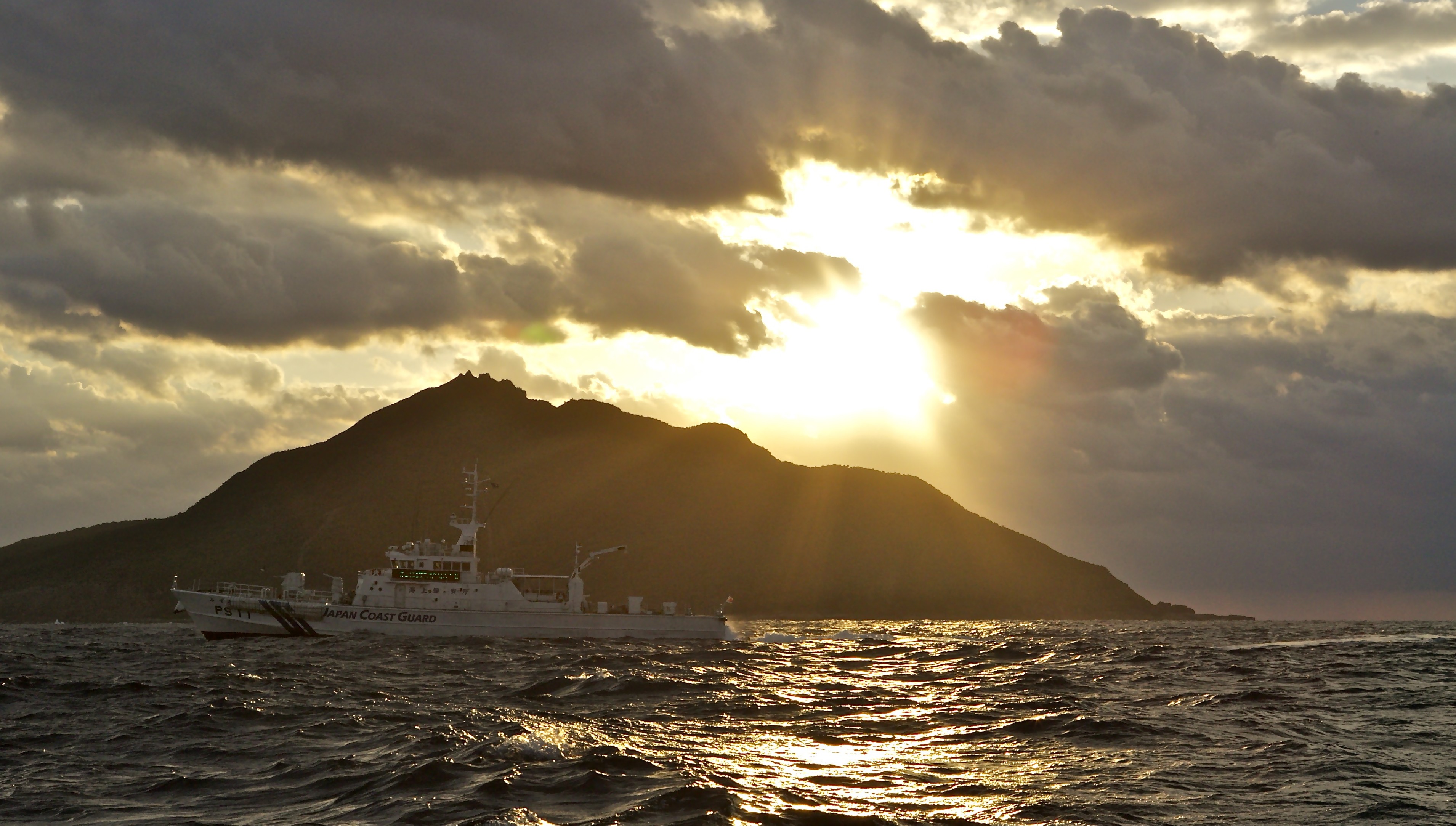In the Middle East, negotiations may (or very well may not) spell a coming peace. But while the eyes of the world have tentatively fallen on Iran, an old dispute has, yet again, been resurrected in the East China Sea. The conflict is one that I wrote of last semester, and it involves a minuscule chain of islands just west of Okinawa and northeast of Taiwan. These are the Senkaku (or Diaoyu, in China) Islands, and their ownership is has long been contested by Japan and the People’s Republic of China. Each claims historical sovereignty over the area. In the past few weeks, however, it has not so much been the islands causing a diplomatic crisis, but rather what’s above them: airspace.

It started, as these things often do, with a declaration. On the 23rd of November, the Chinese Ministry of National Defense proclaimed the establishment of what they termed an “Air Defense Identification Zone,” or ADIZ. The establishment of an ADIZ is, in of itself, hardly a controversial policy. Many nations in the world, including Japan and the United States, have them, and all they mandate is that aircraft identify themselves upon entering national airspace. But politics being politics, and the fact that the zone includes the Senkaku Islands, means that the announcement was met with a diplomatic firestorm. Just like naval ships earlier this year, within days fighter jets, Chinese and Japanese, scrambled and patrolled the disputed space. The State Department warned civilian flights to make themselves known should airplanes enter the disputed space; the U.S. provocatively (and teasingly) sent two unarmed B-52 bombers right through the zone. Chuck Hagel called the move “a destabilizing attempt to alter the status-quo in the region.”
Secretary Kerry, perhaps busy with the Iran talks, has yet to be seen in the far east since the dispute took a sharp turn for crisis. Rather, it was Joe Biden that touched down in Japan late on Monday night. The vice president is scheduled to meet with Xi Jinping on Wednesday, and it is unclear exactly to what extent Biden’s camp will pressure Chinese officials to ease up on the Senkaku issue. Caught between reactionary Japanese politicians, Shinzo Abe among them, who want a firm American commitment to the Japan, and an American desire to maintain amicable relations with the Chinese, Biden faces no easy job.
The hot air and hot water surrounding the Senkaku Islands is, for the most part, posturing. I have written before of the dangerous sway of nationalism when it comes to this territorial spat, but it is highly unlikely that any violence will come from all this. The presence of Mr. Biden is something, or rather, someone, to watch instead. In political time, 2016 is sooner rather than later. And while voters typically have the memory of Dory the fish, Biden should, and most likely will, take advantage of this fleeting East Asian opportunity. The Obama administration has arguably never looked worse. A proactive trip, perhaps with some sort of diplomatic resolution brokered by Biden, would be a victory for an administration that has long forgotten what success looks like, and remind everyone that our vice president will, in all likelihood, soon be a contender for the presidency.
